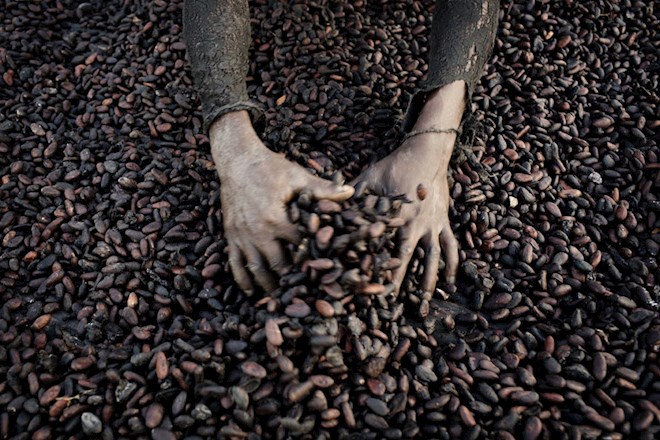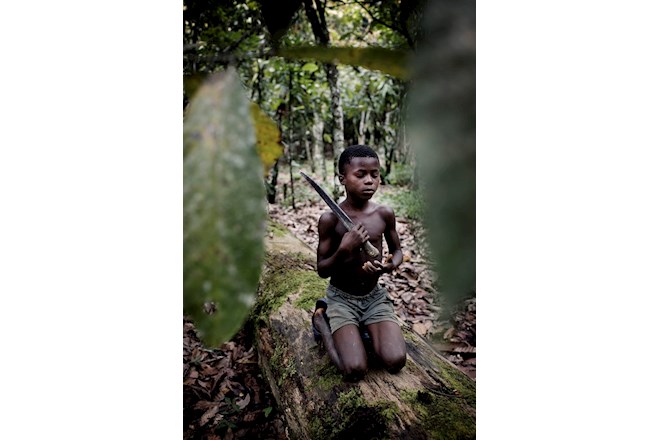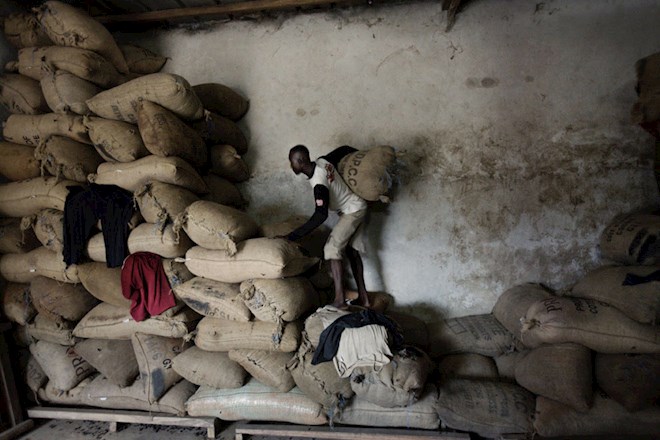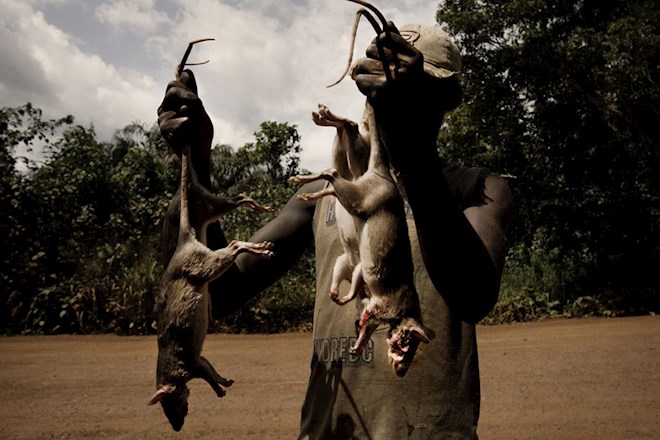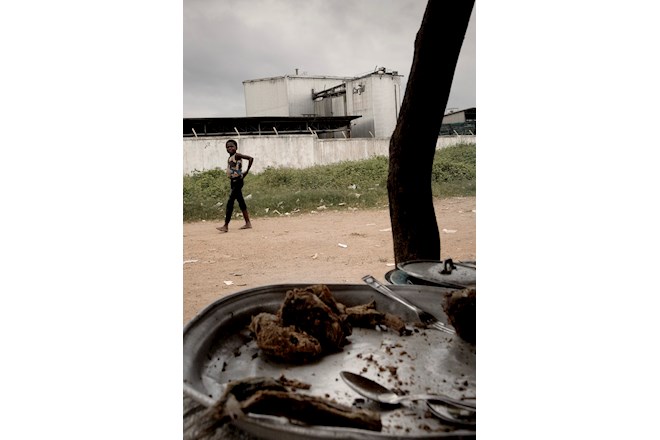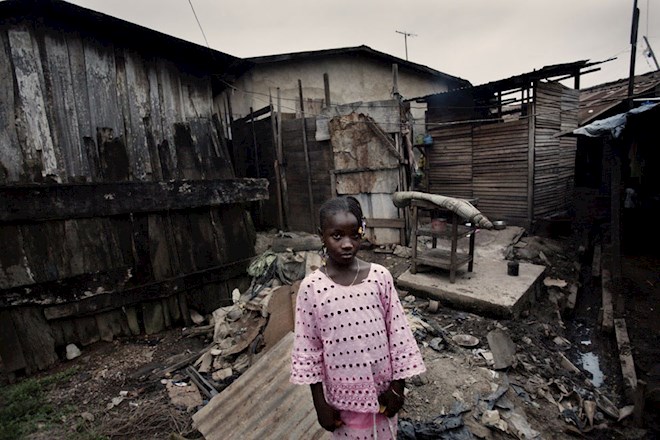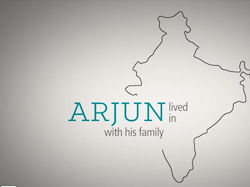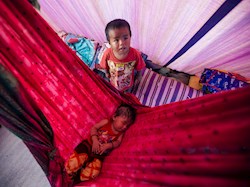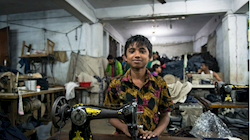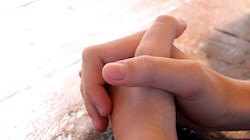April 16, 2015 Mariah Long Video
Ivory Coast is the world's leading producer of cocoa, the raw ingredient for chocolate, and is responsible for about 36 percent of global exports. The cocoa trade of Ivory Coast is mired in the exploitation of children, war and corrupt profits for Ivorian officials and western big chocolate business. It is estimated that a quarter of a million children work in hazardous conditions on Ivorian cocoa farms, in spite of a pledge by the world's biggest chocolate companies more than seven years ago to abolish forced child labor from their supply chain.
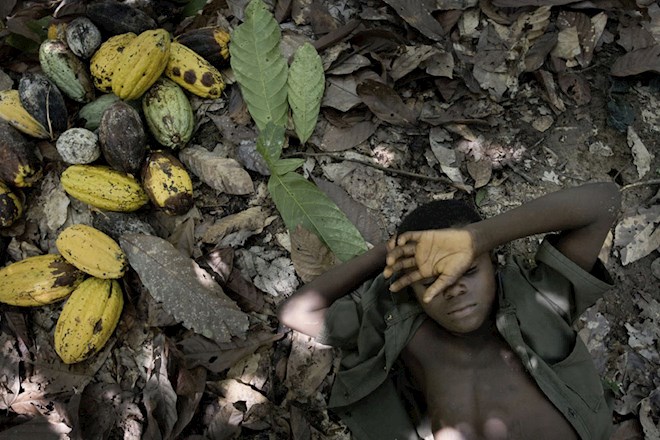
Nine-year-old Jean Baptiste doesn't attend school. Work begins at 8 a.m. and involves cutting cocoa fruit off the trees with a machete and removing the beans. The family has no other viable source of income. Jean Baptiste has no idea what happens to the cocoa beans. Here he is taking a short rest from the strenuous work.
©Daniel Rosenthal
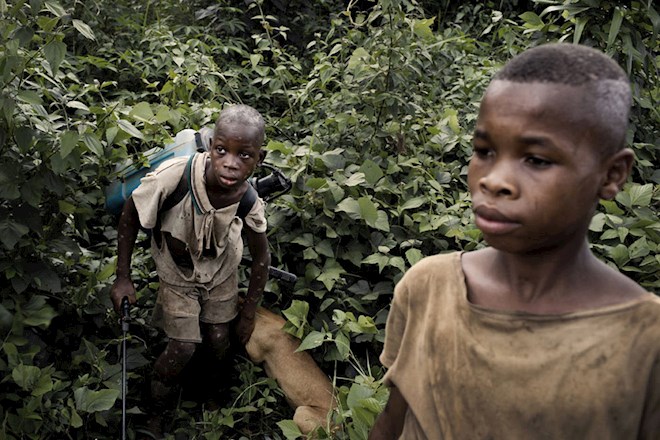
Two children returning to Meagui after working on a cocoa plantation. Richard (left) is carrying a pesticide tank on his back. His whole body is covered with a skin disease (probably Psoriasis). The boys do not attend school.
©Daniel Rosenthal
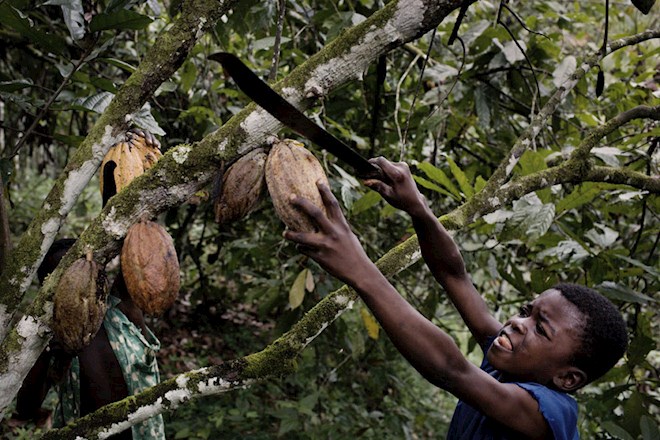
Eleven-year-old Ibra uses a machete tied to a stick to harvest cocoa pods from a tree on his father's cocoa plantation on the outskirts of the village of Sinikosson.
©Daniel Rosenthal
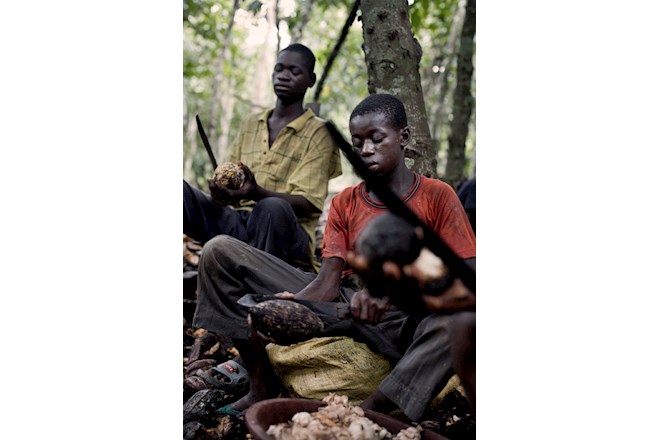
A boy from Burkina Faso spends hours cracking open ripe cocoa pods with a machete before removing the beans and collecting them in a bowl. He does not attend school.
©Daniel Rosenthal
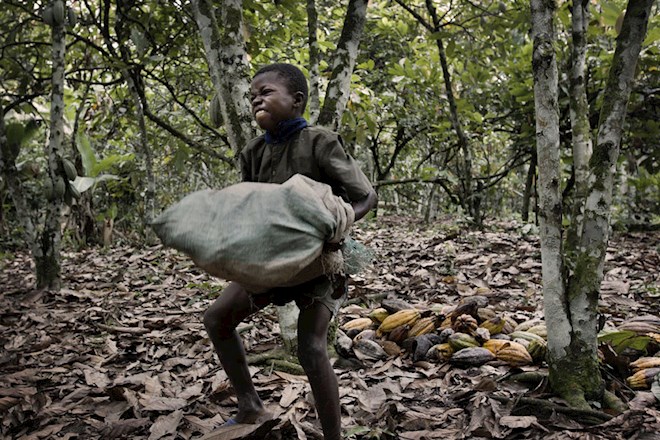
Nine-year-old Jean Baptiste carries sacks of cocoa pods (approximately 30 kg) from his father's plantation on outskirts of the village of Sinikosson. His work involves cutting cocoa fruit off the trees with a machete and removing the beans. The family has no other viable source of income.
©Daniel Rosenthal
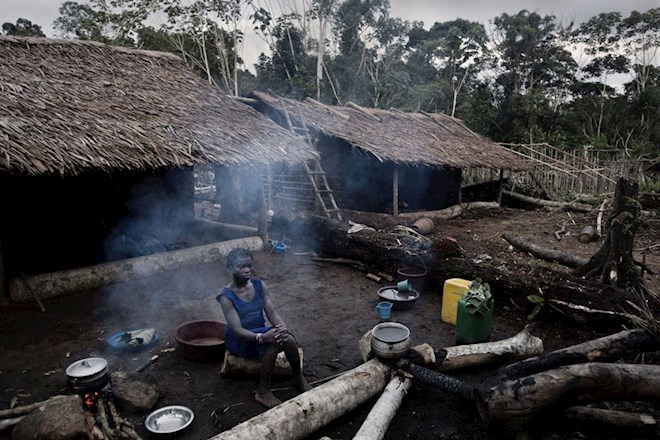
This woman is from Burkina Faso. A member of her community was accused of murdering a man from her village in the Ivory Coast; as a result, she had to leave her cocoa plantation where she had worked for decades. Now, she has returned but lives in fear of being killed by one of the villagers.
©Daniel Rosenthal
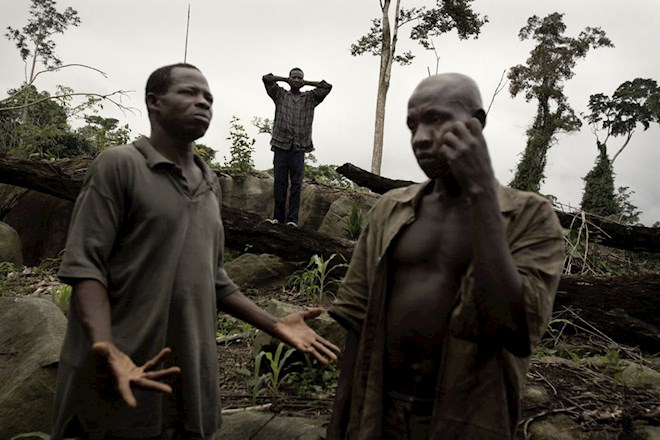
Someone from the community of these cocoa plantation workers from Burkina Faso was accused of the murder of a man from a village in the Ivory Coast. As a result, they had to leave their cocoa plantation. They returned but now live in fear of being killed in revenge by one of the villagers. Here, the workers are standing in a cocoa plantation that was apparently destroyed by neighboring Ivorians.
©Daniel Rosenthal
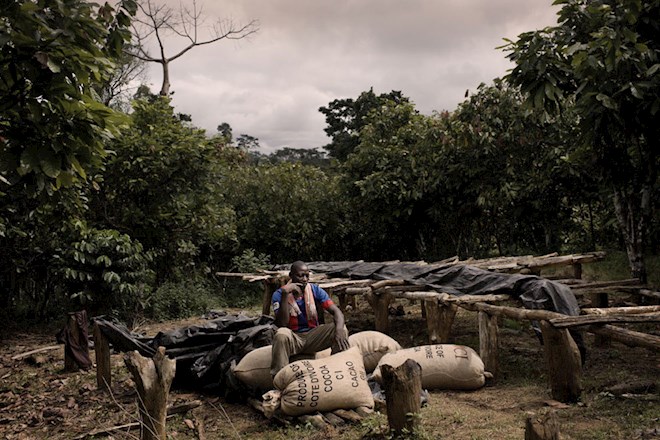
Noel Kaboura from Meagui is a buyer of cocoa beans from plantations. Here he is waiting at a plantation for his colleague Bougma, 24, to take sacks of beans back to Meagui which is approximately 45 k.m. away (a four hour drive).
©Daniel Rosenthal
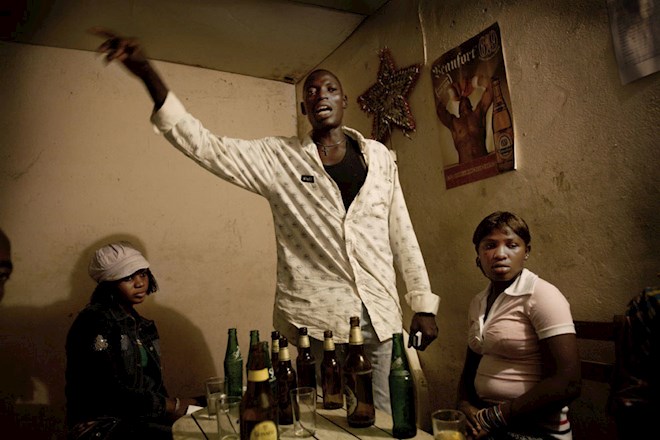
Noel Kaboura from Meagui is a buyer of cocoa beans from plantations. Here he is complaining about working conditions and low pay.
©Daniel Rosenthal
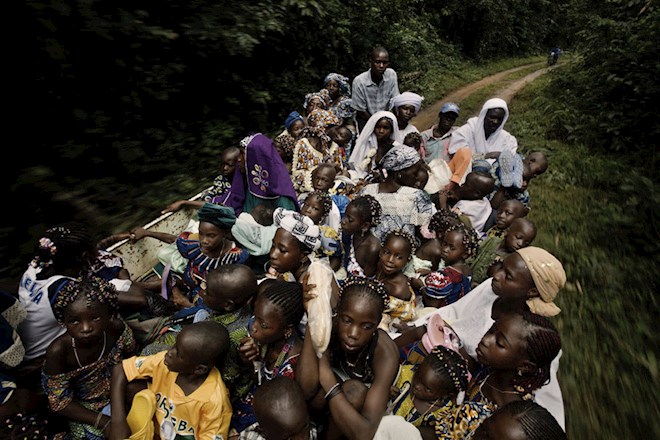
After praying to mark the end of Ramadan, inhabitants from surrounding villages travel free on the back of the truck of cocoa bean buyer Noel Kaboura. These villagers originally come from Burkina Faso and are Muslim.
©Daniel Rosenthal
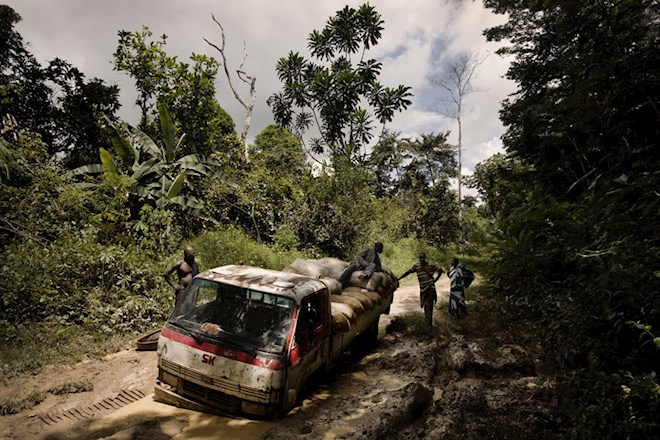
Cocoa beans are being taken to Meagui. The poor infrastructure pushes down the price of the beans grown on the plantations which are difficult to reach.
©Daniel Rosenthal
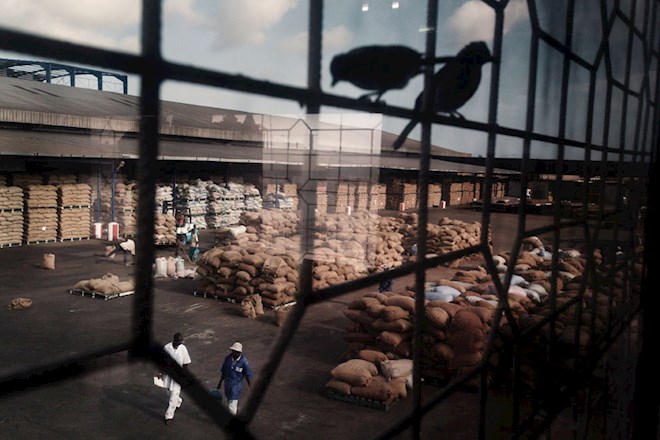
The Lebanese factory owner Ali Lakiss is planning to build the first Ivorian cocoa butter factory. Lakiss used to be a buyer of cocoa beans.
©Daniel Rosenthal
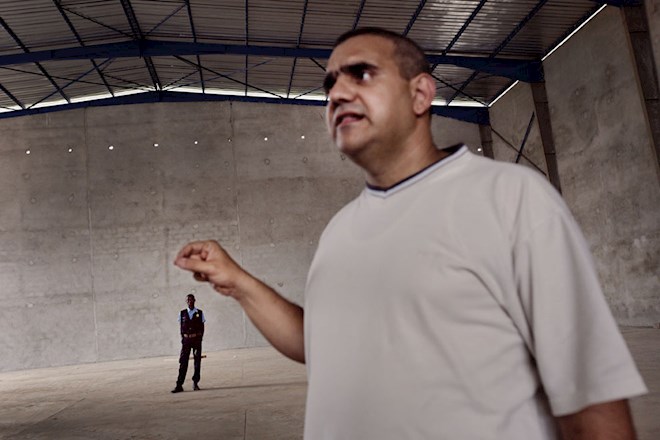
The company's Lebanese director Ali Lakiss is here in his warehouse which is still in the process of being built. He plans to open the first cocoa butter factory in Ivory Coast. Lakiss used to work as a buyer of cocoa beans.
©Daniel Rosenthal
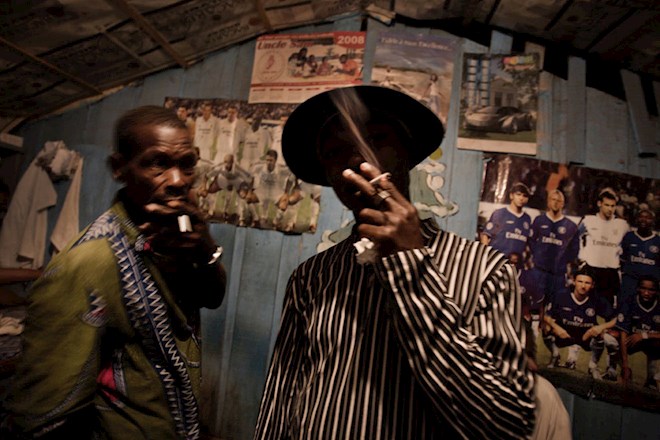
Colombie is a quarter in the Bado slum drug trade, and prostitution thrives here. Many people came to San Pedro to seek work in the cocoa companies but ended up in the slum.
©Daniel Rosenthal
of




















Related Actions
Start Shopping Ethically
Be a more mindful consumer
Register for the IJM Prayer Gathering
Pray, and hear testimonies about victories against modern-day slavery


